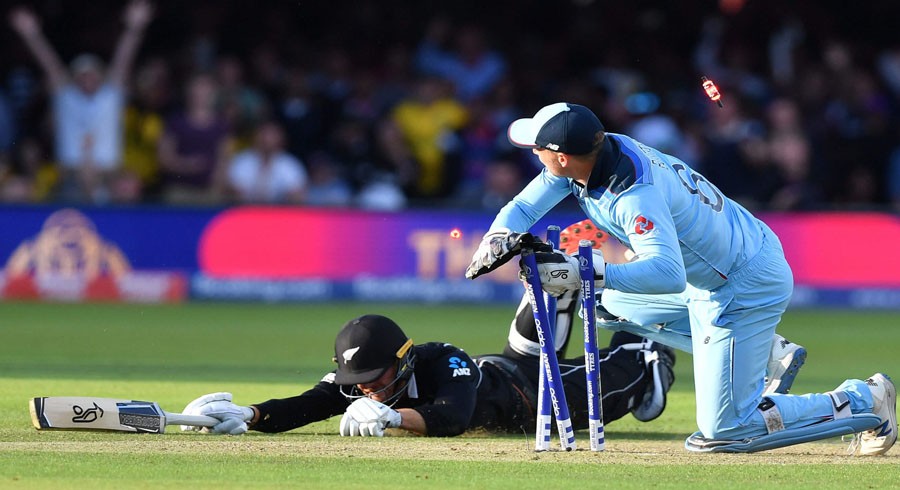2019 World Cup final drama had a major bearing on the decision
 PHOTO: AFP
PHOTO: AFP
The International Cricket Council on Monday modified the Super Over rule for all its major events, after criticism over the result of the men's World Cup final in July when England were crowned winners against New Zealand on boundary count.
Both teams, England and New Zealand, played out a Super Over after scores in the World Cup final were tied at 241. But even that could not separate the two sides as it ended in a tie with both teams making 15 runs each, the winner was decided on account of superior boundary count.
Following that fascinating final, the ICC incurred the wrath of fans and former players over the controversial rule.
The ICC has now changed the rule, to an extent, and in case such a thing occurs again, where both teams are tied even after the Super Over in a final or semifinal, the Super Over will be repeated until there is a clear winner.
"Following on from a recommendation from the ICC Cricket Committee, the Chief Executives' Committee agreed that use of the Super Over as a way to decide results at ICC events will be retained. Both the Cricket Committee and CEC agreed it was an exciting and engaging conclusion to the game and will remain in place covering all games at both ODI and T20I World Cups," the ICC said after its board meeting according to Press Trust of India.
"In group stages, if the Super Over is tied the match will be tied. In Semi Finals and Finals, there is one change to the Super Over regulation in keeping with the basic principle of scoring more runs than the opponent to win, the Super Over will be repeated until one team has more runs than the other," the statement added.
The governing body has also decided that the eight-year cycle commencing in 2023 will comprise eight men's events, eight women's events, four men's U-19 events and four women's U-19 events.
"In examining a whole range of options, the Board felt a major men's and women's event each year will bring consistency to our calendar whilst complementing bilateral cricket, giving our sport a strong future foundation," said ICC chairman. "It will provide clear structure and context to enable the growth of the sport and greater engagement opportunities for all of our stakeholders. The move towards a bidding model will give equal opportunities to all members to host ICC events post 2023."